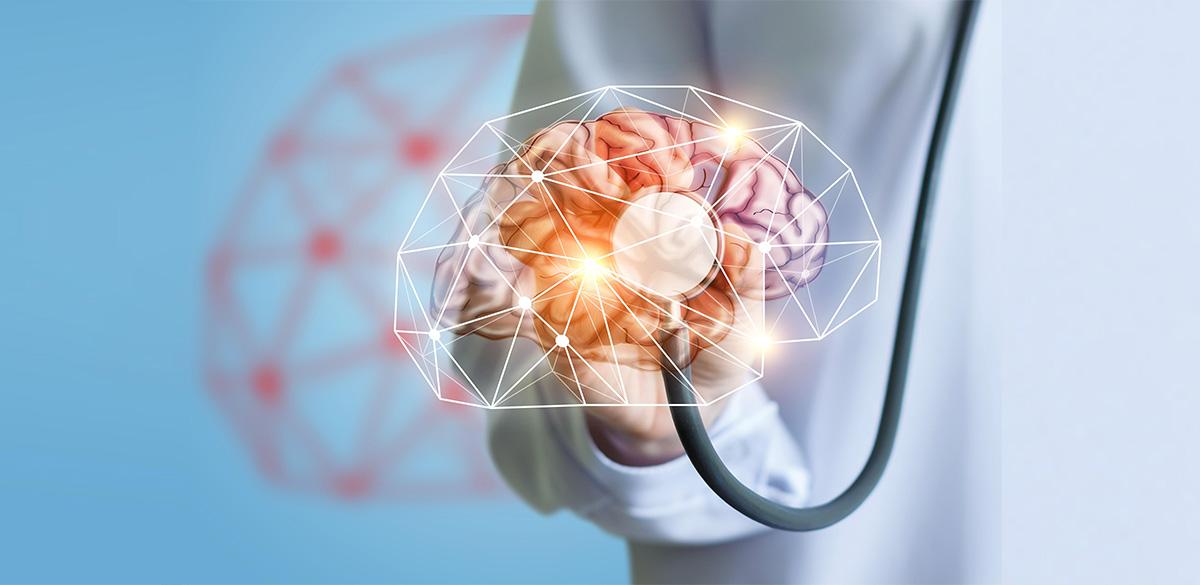Artificial Intelligence (AI) is transforming industries worldwide, and healthcare, particularly neurology, is no exception. AI's ability to process vast datasets, identify patterns, and make predictions has opened new avenues for diagnosing and treating neurological conditions. Neurological disorders, which include conditions like Alzheimer’s disease, Parkinson’s disease, epilepsy, and multiple sclerosis, often require early detection and precise treatment plans to improve patient outcomes. AI-driven technologies hold the promise of revolutionizing this field by making diagnostics faster, more accurate, and enabling highly personalized treatment plans.
Current Challenges in Neurological Diagnostics and Treatment
Neurology presents unique challenges, such as:
- Complexity of the Brain: The brain’s intricacy makes diagnosing neurological disorders a daunting task. Subtle changes in brain function or structure are often difficult to detect with traditional methods.
- Late Diagnoses: Many neurological diseases, such as Alzheimer’s, are diagnosed at advanced stages when intervention is less effective.
- Subjective Assessments: Diagnoses often rely on clinicians’ expertise and subjective interpretation of imaging or symptoms, leading to variability in outcomes.
- Data Overload: Neurologists are increasingly inundated with data from imaging, genetic testing, and electronic health records (EHRs), making it challenging to extract actionable insights.
AI offers solutions to these challenges by leveraging advanced computational techniques to streamline processes, reduce variability, and provide predictive capabilities.
AI in Neurological Diagnostics
AI enhances diagnostic precision by analyzing diverse data sources and identifying patterns that may not be apparent to human clinicians. Several key AI applications in neurology include:
1. Neuroimaging Analysis
AI-powered image recognition algorithms can analyze MRI, CT, and PET scans with remarkable accuracy. For example:
- AI can detect minute structural changes in the brain, such as amyloid plaques or hippocampal atrophy, which are early indicators of Alzheimer’s disease.
- Deep learning models can identify ischemic regions in stroke patients within seconds, expediting treatment during the critical window of intervention.
These tools not only improve diagnostic accuracy but also significantly reduce the time required for analysis.
2. Predictive Analytics for Early Diagnosis
AI models trained on large datasets can predict the likelihood of developing neurological conditions. For instance:
- Machine learning algorithms can assess genetic markers, lifestyle factors, and clinical data to estimate a person’s risk for Parkinson’s or ALS (Amyotrophic Lateral Sclerosis).
- Predictive tools enable early interventions, potentially slowing disease progression and improving quality of life.
3. EEG and Seizure Detection
AI algorithms are increasingly used in analyzing electroencephalograms (EEGs) to detect abnormal brain activity:
- In epilepsy, AI can identify seizure patterns and help in predicting when seizures are likely to occur.
- Automated systems assist neurologists in diagnosing conditions like sleep disorders or encephalopathies by analyzing EEG data with higher precision.
AI in Neurological Treatment Plans
AI is not only transforming diagnostics but also paving the way for more effective treatment strategies through personalized medicine, robotic-assisted therapy, and continuous monitoring.
1. Personalized Treatment Plans
AI enables tailored treatment plans by analyzing patient-specific data, including:
- Genomics and Biomarkers: By identifying genetic mutations or biomarkers associated with certain diseases, AI can suggest targeted therapies.
- Treatment Outcomes: AI systems learn from prior patient outcomes to recommend the most effective therapies for individual cases, reducing trial-and-error approaches.
2. AI-Powered Drug Discovery
Developing drugs for neurological conditions is notoriously challenging. AI accelerates this process by:
- Identifying potential drug targets through bioinformatics analysis.
- Simulating drug interactions with the central nervous system to predict efficacy and side effects.
- Prioritizing compounds for clinical trials, reducing time and costs.
3. Robotic-Assisted Neurological Therapy
AI-powered robotic systems are increasingly used in rehabilitation and surgery:
- Neurorehabilitation Robots: These devices assist in physical therapy for stroke patients or individuals with spinal cord injuries by adapting to their progress and capabilities.
- Surgical Robots: AI-driven robotic systems improve the precision of neurological surgeries, minimizing risks and recovery times.
4. Remote Monitoring and Telemedicine
AI, integrated with wearable devices and telemedicine platforms, ensures continuous patient monitoring. For example:
- Wearable devices can track tremors, gait, and other motor symptoms in Parkinson’s patients, sending real-time data to healthcare providers.
- AI algorithms analyze this data to adjust medication dosages or suggest lifestyle modifications dynamically.
Challenges and Ethical Considerations
While AI has immense potential, it also raises challenges and ethical concerns:
- Data Privacy: Ensuring patient data security and compliance with regulations like GDPR is crucial.
- Bias in AI Models: AI algorithms may inherit biases from training data, leading to inequities in diagnosis or treatment recommendations.
- Clinician Trust: Many clinicians are hesitant to fully trust AI systems, fearing loss of control over decision-making.
Addressing these concerns requires robust frameworks for AI validation, explainability, and integration into clinical workflows.
The Future of AI in Neurology
The future of AI in neurology is bright, with several promising developments on the horizon:
- Multimodal AI: Integrating data from diverse sources, such as imaging, genetics, and patient-reported outcomes, will enhance diagnostic and therapeutic precision.
- Brain-Computer Interfaces (BCIs): BCIs powered by AI could restore mobility in paralyzed patients or improve communication in individuals with locked-in syndrome.
- Global Accessibility: AI tools have the potential to democratize neurological care by providing affordable diagnostic solutions in underserved regions.
Conclusion
AI is poised to revolutionize neuromatch and treatment plans by addressing long-standing challenges and enabling innovative approaches. From early detection of diseases to personalized treatment and continuous patient monitoring, AI-driven solutions promise to improve outcomes and reduce the burden of neurological disorders on healthcare systems. However, realizing this potential requires addressing ethical concerns, ensuring data security, and fostering trust among clinicians and patients. By leveraging AI responsibly, we can pave the way for a new era in neurology where technology enhances human capabilities and improves lives.



